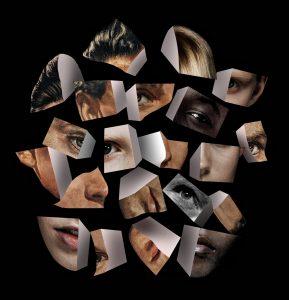Thomas Chatterton Williams in the New York Times:
 Earlier this summer, a white poet named Anders Carlson-Wee published “How-To,” in The Nation. It’s a brief verse riffing on the various performances many homeless people must undertake in order to render themselves visible to passers-by. “If you got hiv, say aids,” Carlson-Wee wrote. “If you a girl, say you’re pregnant — nobody gonna lower themselves to listen for the kick. People passing fast.” Corny, perhaps, but it’s hard not to see this as an exercise, however forced or clumsy, in empathy. A few weeks later, The Nation appended a lengthy editor’s note — longer than the work itself — to the original post, stating that the poem “contains disparaging and ableist language that has given offense and caused harm to members of several communities.” One particularly offending line read: “If you’re crippled don’t flaunt it. Let em think they’re good enough Christians to notice.” Carlson-Wee apologized, too, acknowledging on Twitter that the criticism had been “eye-opening.” The first reply to this tweet of contrition was a seemingly serious further rebuke: The phrase “eye-opening” was dismissive of the visually impaired.
Earlier this summer, a white poet named Anders Carlson-Wee published “How-To,” in The Nation. It’s a brief verse riffing on the various performances many homeless people must undertake in order to render themselves visible to passers-by. “If you got hiv, say aids,” Carlson-Wee wrote. “If you a girl, say you’re pregnant — nobody gonna lower themselves to listen for the kick. People passing fast.” Corny, perhaps, but it’s hard not to see this as an exercise, however forced or clumsy, in empathy. A few weeks later, The Nation appended a lengthy editor’s note — longer than the work itself — to the original post, stating that the poem “contains disparaging and ableist language that has given offense and caused harm to members of several communities.” One particularly offending line read: “If you’re crippled don’t flaunt it. Let em think they’re good enough Christians to notice.” Carlson-Wee apologized, too, acknowledging on Twitter that the criticism had been “eye-opening.” The first reply to this tweet of contrition was a seemingly serious further rebuke: The phrase “eye-opening” was dismissive of the visually impaired.
If it feels as though we no longer know how to speak or listen in good faith to one another, it’s because we don’t. This is the kind of controversy that might have seemed overblown as recently as the start of the Obama administration. Today it arrives with frequency and fervor — a marker of the country’s rapidly shifting mores, which are the product of new generations increasingly fluent in, in thrall to and in fear of the hyperspecialized language and norms of academia.
More here.
